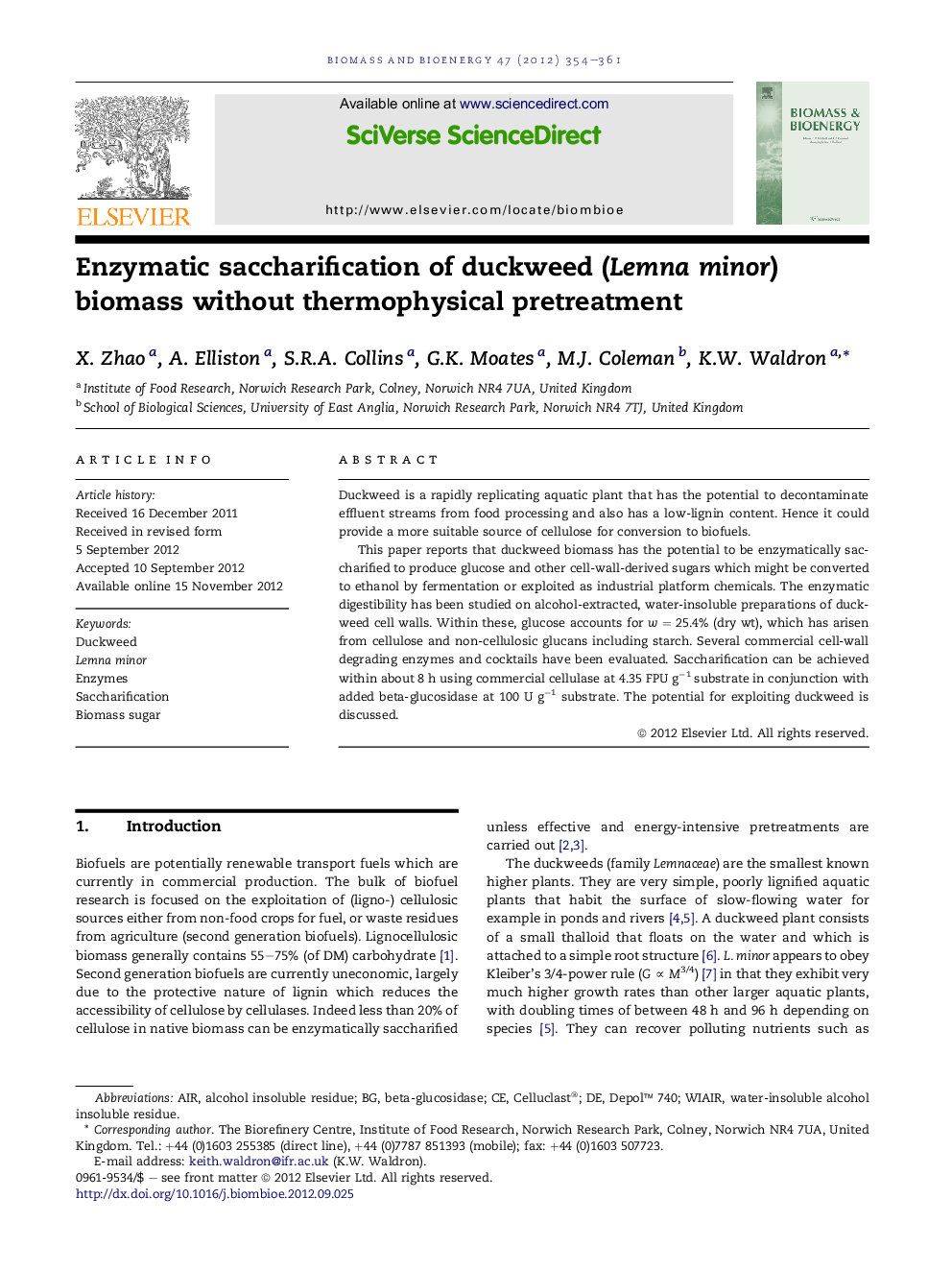| کد مقاله | کد نشریه | سال انتشار | مقاله انگلیسی | نسخه تمام متن |
|---|---|---|---|---|
| 677291 | 1459846 | 2012 | 8 صفحه PDF | دانلود رایگان |

Duckweed is a rapidly replicating aquatic plant that has the potential to decontaminate effluent streams from food processing and also has a low-lignin content. Hence it could provide a more suitable source of cellulose for conversion to biofuels.This paper reports that duckweed biomass has the potential to be enzymatically saccharified to produce glucose and other cell-wall-derived sugars which might be converted to ethanol by fermentation or exploited as industrial platform chemicals. The enzymatic digestibility has been studied on alcohol-extracted, water-insoluble preparations of duckweed cell walls. Within these, glucose accounts for w = 25.4% (dry wt), which has arisen from cellulose and non-cellulosic glucans including starch. Several commercial cell-wall degrading enzymes and cocktails have been evaluated. Saccharification can be achieved within about 8 h using commercial cellulase at 4.35 FPU g−1 substrate in conjunction with added beta-glucosidase at 100 U g−1 substrate. The potential for exploiting duckweed is discussed.
► Duckweed appears to be a potential low-lignin source of saccharifiable biomass.
► Detailed analysis of the chemical compositions of duckweed cell wall material.
► Duckweed cell walls saccharification using excess commercially-available enzymes.
► Optimisation of enzyme dosage and cellulase/beta-glucosidase ratio.
Journal: Biomass and Bioenergy - Volume 47, December 2012, Pages 354–361